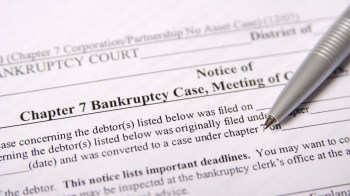Our Minneapolis caller is a 27-year-old single mom with a pile of student loans and an equally large pile of credit card bills and medical debt. Student loans typically can’t be erased in bankruptcy, but the other debt can, and she’s decided to file for Chapter 7 relief rather than continuing to struggle with old bills.
Under today’s stricter bankruptcy rules, she likely wouldn’t be able to get the debt erased if she could pay it off in less than five years, so bankruptcy may well be the best of bad options.
Her question is how she can rebuild her credit after bankruptcy. The answer is that it’s possible, but it will take longer than in the past, due to lenders’ tighter credit standards. Here’s what she needs to know:
-
The statute of limitations on blaming your parents has expired. Our caller mentioned that she didn’t learn good money management habits from her parents, but she’s an adult now, and legally responsible for her financial choices. She needs to make smart money decisions from now on, which include building up some savings and not carrying credit card debt.
-
The only good thing about messing up so thoroughly while you’re so young is that you have plenty of time ahead of you to do things right. Sometimes bad decisions take longer to catch up with people, or they face a catastrophe (job loss, disability, divorce, death of a spouse) too late in life to recover from it. The fastest-growing group of bankrupts is people over 65, and you definitely don’t want to be both old and broke.
-
Nothing is permanent with credit. A bankruptcy will drop your FICO credit scores to the low 500s, but you can rebuild over time by having and using credit responsibly. The first step is to get a secured credit card. You give a deposit (usually $200 to $1,000) to the issuing bank as collateral and you get a credit card with a similar limit. Charge no more than 10% of the card’s limit and — this is essential — PAY IT OFF IN FULL every month. There is no need to carry debt to improve your credit scores. After 6 to 12 months, apply for a small personal loan from a local credit union and pay that back. Having both revolving and installment accounts on your credit reports will speed the healing.
-
Don’t go without health insurance, if you can help it. Medical debt is a factor in many bankruptcies. It only takes one accident or illness to rack up catastrophic bills, so you should always have the coverage if you can get it.
There’s a lot happening in the world. Through it all, Marketplace is here for you.
You rely on Marketplace to break down the world’s events and tell you how it affects you in a fact-based, approachable way. We rely on your financial support to keep making that possible.
Your donation today powers the independent journalism that you rely on. For just $5/month, you can help sustain Marketplace so we can keep reporting on the things that matter to you.


















